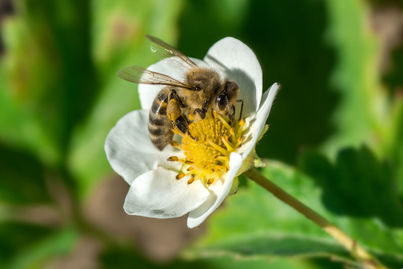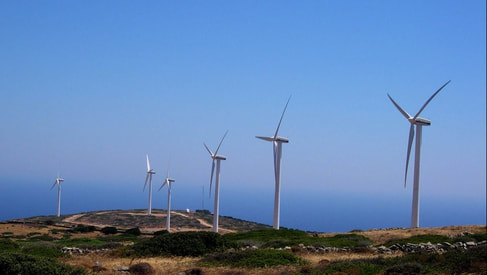XL POLYTHENE COVERS

We have worked with soft fruit growers now for over 25 years. We have listened to what you want, made countless samples and trials, and by analysing your current requirements and products we have developed a new type of film which exceeds the strength and lifetime qualities of every other film on the market.
We were the first to sell diffused film 23 years ago. Our extensive research has shown better growing results with a medium diffusion film than a high diffusion film. This is because on most days there is some cloud cover, which diffuses the light already. By using a lower level of diffusion we can give a higher overall light level. All of our diffused films use the same medium diffusion.
XL were the first to do work on UV open films and have been conducting trials with them since 2003. Normal polythene and glass blocks the UV below about 350 nms but outside the UV goes down to 200 nms. Below 280 it doesnt penetrate the atmoshpere. However what we do know is that the lower levels of UV give a thicker cell wall, and increased disease resitance. They stimulate the root growth of a plant as well as giving a higher brix level, colour and anti oxidant level in the fruit.
For this reason all of the SunMaster range is UV open, except for one (SunMaster SuperThermic) which blocks the UV entirely. Blocking the UV gives a bigger foliage growth and also dramatically reduces fungal diseases, whitefly and other flying insects. And therein lies the problem for the soft fruit grower because we rely heavily on bees as pollinators. Having said that much of the early organic strawberry work at Wye used XL SteriLight and had perfectly good crops. We also know it takes 13 days for bees to become accustomed to, for what is to them a lower light level, and start to work.
Over the past few years the burning of sulphur has become very common. Sulphur burners have an adverse affect on the UV stabilisers in the film and can halve the effective life of the polythene. This can be seen by the splitting and cracking of the film, usually above the burners. Our normal films will withstand a contamination of 300ppm sulphur and 100ppm chlorine, however for a very small extra charge we can double the resistance to Sulphur. Please ask us to add this to your quote.
We were the first to sell diffused film 23 years ago. Our extensive research has shown better growing results with a medium diffusion film than a high diffusion film. This is because on most days there is some cloud cover, which diffuses the light already. By using a lower level of diffusion we can give a higher overall light level. All of our diffused films use the same medium diffusion.
XL were the first to do work on UV open films and have been conducting trials with them since 2003. Normal polythene and glass blocks the UV below about 350 nms but outside the UV goes down to 200 nms. Below 280 it doesnt penetrate the atmoshpere. However what we do know is that the lower levels of UV give a thicker cell wall, and increased disease resitance. They stimulate the root growth of a plant as well as giving a higher brix level, colour and anti oxidant level in the fruit.
For this reason all of the SunMaster range is UV open, except for one (SunMaster SuperThermic) which blocks the UV entirely. Blocking the UV gives a bigger foliage growth and also dramatically reduces fungal diseases, whitefly and other flying insects. And therein lies the problem for the soft fruit grower because we rely heavily on bees as pollinators. Having said that much of the early organic strawberry work at Wye used XL SteriLight and had perfectly good crops. We also know it takes 13 days for bees to become accustomed to, for what is to them a lower light level, and start to work.
Over the past few years the burning of sulphur has become very common. Sulphur burners have an adverse affect on the UV stabilisers in the film and can halve the effective life of the polythene. This can be seen by the splitting and cracking of the film, usually above the burners. Our normal films will withstand a contamination of 300ppm sulphur and 100ppm chlorine, however for a very small extra charge we can double the resistance to Sulphur. Please ask us to add this to your quote.
THICKER vs thin...
When we started our polythene business 25 years ago all films were 180 or 200 mu thick and they only lasted for 2 or 3 seasons so the thickness of a film has nothing to do with how long a cover will last or how strong it is.
Technology has come on a long way in 20 years and we no longer need to make poly thick to make it strong as we use modern co-polymers. The difference between 150 and 180 mu is 30-100ths of a millimetre - a very very small amount.
Technology has come on a long way in 20 years and we no longer need to make poly thick to make it strong as we use modern co-polymers. The difference between 150 and 180 mu is 30-100ths of a millimetre - a very very small amount.
make it green

Of course there is no way - yet - to make polythene totally environmentally friendly but we do our best to minimise the environmental impact.
HOW...
HOW...
- We make our polythene thinner so that you can cover a greater area with every tonne of polymer you use. Don't forget at 150mu we can cover up to 20% more surface area than films which are 180mu thick.
- We make it last longer!
We have customers who have had covers from us on their tunnels for over 13 years! - We make it using carbon neutral energy. All of our polythene is made from either wind or solar generated electricity.
- All of our film is made from virgin polymer and is highly sought after by polythene recycling companies.
